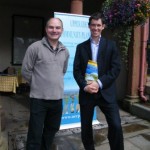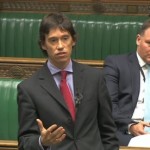Fixing Democracy
Teacher: “What does your father do, little Billy?” “He plays the piano in an opium den”. Teacher calls home. Father: “I lied: but how can you tell an eight year old boy that his father is a politician?”
In polls, more than eighty per cent of the public feel ‘politics is broken’. When strangers discover I’m a politician they often look at me as though they are unsure whether I am a snake or a monkey. And all the questions they ask – put as politely as they can – imply they are astonished by our ignorance, our shoddiness, and our incompetence. Which leaves democracy in a strange position. Our democracy has been developing for four hundred years, the British people have never been so educated or confident, but the gap between public and politicians has never felt larger: citizens are deeply disappointed in their politicians. The same is true in almost every ‘democratic’ country.
In 2003, George Bush boldly proclaimed in his State of the Union address that: “because democracies respect their own people and their neighbours, the advance of freedom will lead to peace.” This was not just one man’s view. Harvard professors also argued that democracy in countries like Iraq would make such places stable, responsive, good at resolving conflict, legitimate, and less likely to harbour terrorists. But the last decade has not realised their dream. Afghan ministers are often highly articulate, well travelled people, who have been professors in American universities; and Afghanistan is classified as a democracy, but there is little emphasis on minority rights, or freedom of religion (the majority of Afghans believe people who convert from Islam should be killed); security is terrible, judges are weak and corrupt, the government is despised, and there is little which an international observer would recognise as “rule of law’. In Iraq, in parts of sub-Saharan Africa, or Pakistan, democracies are still compatible with unpopular regimes, instability and danger. And many voters place less and less priority on their constitution. In a poll in Baghdad in 2004, 7 per cent said their ideal political system was that of the US, 5 per cent France, 3 per cent Britain: 40 per cent said “Dubai” – which is a tiny wealthy monarchy, and not a democracy at all.
But I have never met an Afghan or an Iraqi who did not want a say in who governed them. And when the West intervenes abroad it has to support a democratically elected government, because it is the only system consistent with our own values, our interests and the wishes of the people in the country. In 2003 the West tried to delay elections in Iraq for two years on the grounds that ‘the lesson from Bosnia was that early elections brought extremism’: councils were appointed, not elected, to give time for voter education, and modern political parties. The result: hundreds of people demonstrating outside my office demanding elections. When I said ‘what’s wrong with the provincial council – there is a chief of each of the major tribes, the senior Sunni cleric and the senior Shia, and members of every major political party?’ They replied ‘the problem is not who you chose, the problem is that you chose them.’
To support democracy, we need to recall why it matters. Too often we use indirect arguments: ‘democracy is good because it brings peace and prosperity’, ‘torture is wrong because it produces bad information’ or ‘women’s rights are important because they contribute to economic growth.’ This is dangerous, because if Gaddafi could prove that torture produced good information, or Saudi Arabia that it had growth without women’s rights, the argument would collapse. It encourages people to obsess about whether India would do better economically than China if it was not a democracy. But the reason democracy is good is not because it guarantees economic prosperity, stability or legality – Colombia is after all the oldest democracy in Latin America. Democracy is good in itself (even when it means little more than elections) because it enshrines liberty and equality in our political system: it shows that each of us is of equal dignity and has equal right to vote for a government. This is a good, which is more than economic – which may be why a Cumbrian could prefer to live in Britain than Qatar – even though the GDP per capita in Qatar is three times that of Britain.
But to make democracy vigorous again, both citizens and politicians need a new kind of honesty and a new kind of involvement. Politicians need to admit when they don’t know, and learn to explain that some things which voters want, and which they have been promised, either can’t be done, or shouldn’t be done. And citizens and the media have to give them the space to do that. Secondly, we need local democracy. People are far better informed and more energised than they have ever been before – they have a genius for the local – and care about, and can shape their local communities: so let’s directly elect more local representatives. Britain could learn from France’s elected Mayors; Afghanistan would have been better off, if instead of concentrating on national elections, they had moved to directly elected local officials. But democracy is about more than constitutions: it is a culture, a virtue of politicians and of citizens. For democracy to
revive, anywhere in the world, the public needs to learn to trust politicians, and politicians need to learn to trust the public.










